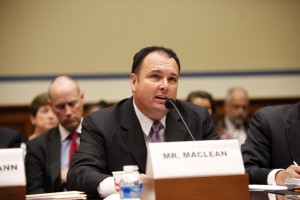Supreme Court Holds That NLRA Does Not Preempt An Employer’s Tort Claims Alleging That The Union Intentionally Destroyed The Company’s Property During A Labor Dispute
Glacier Northwest, Inc., v. International Brotherhood of Teamsters Local Union No. 174, 2023 WL 3742578 (2023)
Glacier Northwest, a concrete company, depends on its truck drivers to deliver concrete to customers in a timely manner. But when relations between Glacier and its drivers soured, the drivers went on strike. Their labor union allegedly designed the strike with the intent to sabotage Glacier’s property. Although Glacier managed to avoid damage to its delivery trucks by deploying emergency maneuvers, the concrete that it had already produced that day went to waste. Glacier sued the union in state court for destroying its property. But the company did not get very far: The state court dismissed Glacier’s tort claims on the ground that they were preempted by the National Labor Relations Act. In an 8 – 1 opinion authored by Justice Barret, the Supreme Court reversed its holding in favor of the Glacier Northwest because the NLRA does not shield strikers who fail to take “reasonable precautions” to protect their employer’s property from foreseeable, aggravated, and imminent danger due to the sudden cessation of work and, in the opinion of the majority, the Union failed to “take reasonable precautions to protect” against this foreseeable and imminent danger.
Justice Thomas, with whom Justice Gorsuch joined, concurred in the decision but suggested that it was time to overrule San Diego Building Trades Council v. Garmon, 359 U. S. 236 (1959).
Justice Jackson issued a withering dissent:
The right to strike is fundamental to American labor law. Congress enshrined that right in the National Labor Relations Act (NLRA) and simultaneously established the National Labor Relations Board to adjudicate disputes that arise between workers and management. That decision reflected Congress’s judgment that an agency with specialized expertise should develop and enforce national labor law in a uniform manner through case-by-case adjudication. For its part, this Court has scrupulously guarded the Board’s authority for more than half a century. See San Diego Building Trades Council v. Garmon, 359 U. S. 236 (1959). Under Garmon, and as relevant here, a court presented with a tort suit based on strike conduct generally must pause proceedings and permit the Board to determine in the first instance whether the union’s conduct is lawful if the conduct at issue is even “arguably” protected by the NLRA.
Today, the Court falters. As the majority acknowledges, the Board’s General Counsel has filed a complaint with the Board after a thorough factual investigation, and that complaint alleges that the NLRA protects the strike conduct at the center of this state-court tort suit. The logical implication of a General Counsel complaint under Garmon is that the union’s conduct is at least arguably protected by the NLRA. Consequently, where (as here) there is a General Counsel complaint pending before the Board, courts—including this Court—should suspend their examination. Garmon makes clear that we have no business delving into this particular labor dispute at this time.
But instead of modestly standing down, the majority eagerly inserts itself into this conflict, proceeding to opine on the propriety of the union’s strike activity based on the facts alleged in the employer’s state-court complaint. As part of this mistaken expedition, the majority tries its own hand at applying the Board’s decisions to a relatively novel scenario that poses difficult line-drawing questions—fact-sensitive issues that Congress plainly intended for the Board to address after an investigation. And in the course of inappropriately weighing in on the merits of those questions at this stage, the majority also misapplies the Board’s cases in a manner that threatens to both impede the Board’s uniform development of labor law and erode the right to strike.
In my view, today’s misguided foray underscores the wisdom of Congress’s decision to create an agency that is uniquely positioned to evaluate the facts and apply the law in cases such as this one. This case is Exhibit A as to why the Board—and not the courts—should ordinarily take the first crack at resolving contentious, fact-bound labor disputes of this nature. Because the majority’s ruling suggests otherwise, I respectfully dissent.



